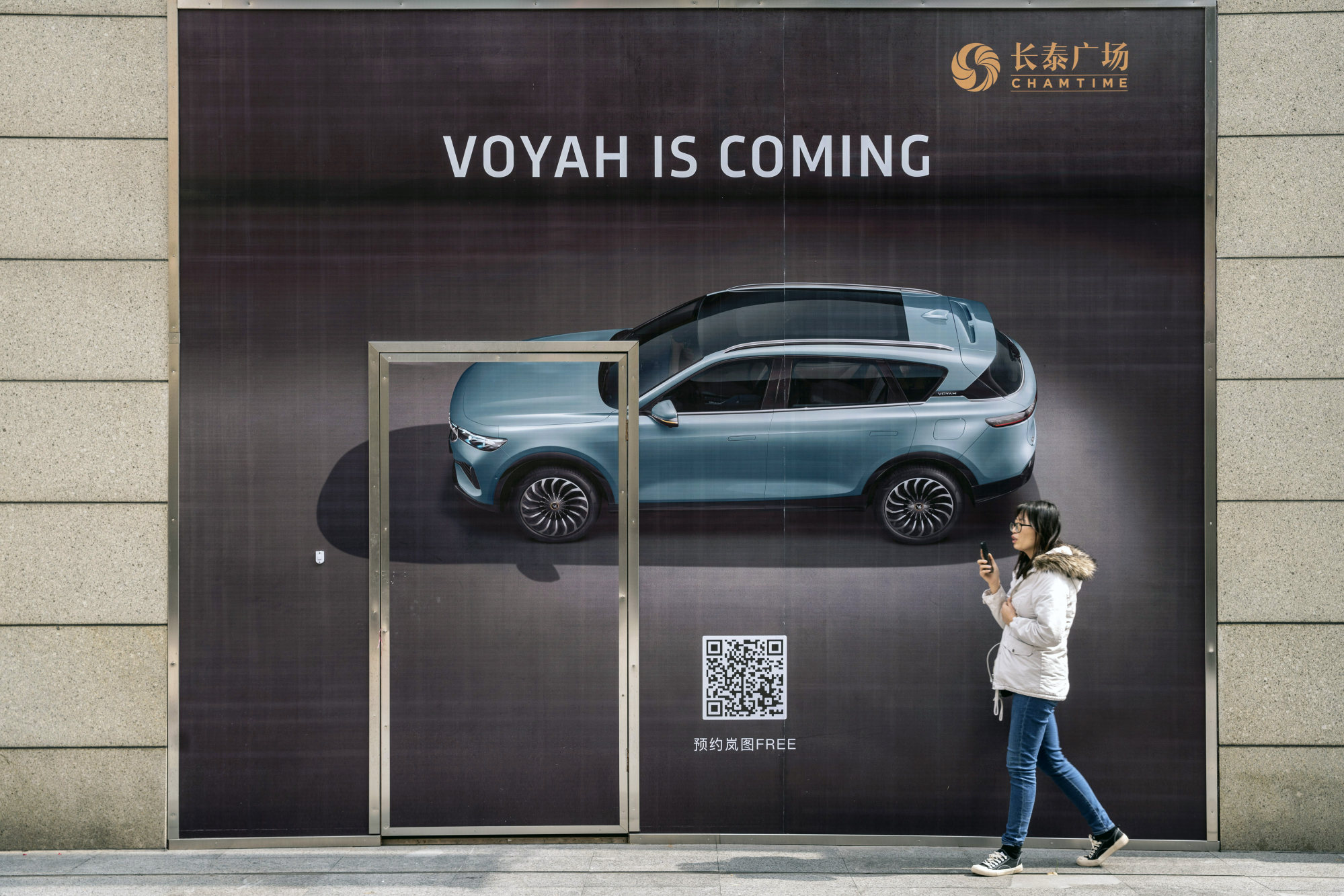
Tesla, NIO, Xpeng face a new rival as Peugeot’s Chinese partner Dongfeng launches all-electric brand Voyah to claim its turf in China’s intensifying EV war
- The first all-electric Voyah model will be launched in July, with a range of up to 500 kilometres (310 miles) on a single charge
- The basic model, expected to be priced at less than 400,000 yuan, carries a 1.5-litre four-cylinder turbocharged engine and an electric motor
Dongfeng Motor, the Chinese partner of Japan’s Nissan Motor and PSA Peugeot Citroen of France, has entered the world’s largest market for so-called new energy vehicles (NEVs), launching a new brand called Voyah to take on Tesla.
The first all-electric Voyah model will be launched in July, fitted with a 60 kilowatt-hour battery with a range of up to 500 kilometres (310 miles) on a single charge, the Chinese carmaker said during a webinar. The basic model, expected to be priced at less than 400,000 yuan (US#61,680), carries a 1.5-litre four-cylinder turbocharged engine and an electric motor.
The Voyah, with a maximum range 16 per cent shorter than Tesla’s bestselling Model Y, is Dongfeng’s first attempt to wrest the ballooning market for NEVs – expected to make up three of every five cars on China’s roads by 2030, UBS said – from the runaway market leader Tesla, which is churning out Model 3 and Model Y electric cars in Shanghai. Voyah will come with an extended range that can go as far as 860km on a single charge, the carmaker said.
“Range anxiety is still one bottleneck facing electric cars,” said Ji Xiaodong, communications director of Voyah. “We are doing our best to find our solution to the problem.”


“Nearly every conventional carmaker will ramp up development and production of electric vehicles this year because they are aware that electrification is an irreversible trend,” said Chen Jinzhu, chief executive of Shanghai Mingliang Auto Service. “Tesla will retain its branding and technological advantages over its Chinese rivals in the years to come.”
A second production model of the Voyah will be launched at the end of 2021, said Ji. The carmaker unveiled a prototype of its Voyah Free at the end of 2020.
Beijing rolled out strong incentives such as cash subsidies and free car licence plates to spur sales of EVs in line with the country’s efforts to curb pollution and attain its carbon-neutrality goal by 2060.
The pace of electrification in China’s automotive industry will accelerate over the next decade with three out of five new cars, or 18 million units, powered by battery packs by 2030, UBS said. The bank also expects China to sell 6.6 million electric cars in 2025, about 25 per cent of all new cars.
Technology giants such as online search engine and artificial intelligence company Baidu, Alibaba, Tencent and Huawei Technologies Co. Technologies have either announced plans to assemble EVs by their own or established joint ventures with conventional vehicle assemblers to develop next-generation cars.
Tesla delivered 4,630 Model Ys in February, compared to 1,641 in January, according to data compiled by the China Passenger Car Association. Sales of Tesla’s Model 3 cars built in Tesla’s Shanghai’s Gigafactory 3 stayed roughly flat, at 13,688 units.
NIO delivered 5,578 units last month, 22.8 per cent down from sales of 7,225 in January. Xpeng’s February sales slumped 63 per cent from a month earlier to 2,223 units. Li Auto delivered 2,300 units last month, 57 per cent fewer than January.

